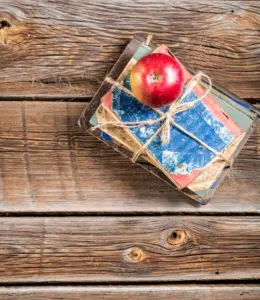
The first time Thabiso brought a betting slip to school, he thought nothing of it. He found it tucked under the sugar tin next to the stove, folded neatly with the grocery receipt. It had his father’s handwriting on it, lean, quick numbers next to team names and betting codes. He took it with him not out of interest, but out of habit. His dad didn’t leave notes in his lunchbox or messages in his textbooks. What he did leave behind were slips. Folded evidence of effort. A language spoken in odds and outcomes.
Thabiso is eleven. His maths is above average, his reading is decent, and he can name more European football teams than his teacher. He knows which clubs are injury-prone. He knows how many goals have been scored by Napoli’s front line this season. He knows when the odds look too clean to trust. These aren’t things he was taught. They’re things he absorbed from being around them. Like how some kids learn which herbs go into stew just by watching their mothers cook. Thabiso learned risk by watching his father stare at his phone every night, trying to turn R40 into relief.
Their home in Welkom is quiet. His father works at a tyre fitment centre, Monday to Saturday. His mother left a few years ago and hasn’t been back. The house runs on silence and small margins. There’s no space for splurging. Just survival and the small pleasures that come with it. For his dad, betting is less about luck and more about attention. The way he focuses, eyes narrowing, mouth set, scrolling through fixtures. It’s one of the few times he looks alive.
So Thabiso noticed. And he started asking questions. Quietly, carefully, like a kid testing how close he could get to the heat without getting burned. “Why did you pick that team?” “What does 3.8 mean next to their name?” “Why didn’t you cash out?” His father never shooed him away. Just answered in pieces. “Because they always score in the last ten.” “That means I win three times what I bet, plus a bit.” “Because I thought I still had time.” It wasn’t a lesson. It was proximity. One boy watching one man try to beat a system that rarely lets you win.
At school, Thabiso started noticing who else understood the codes. In the back row, Sipho scrolled through his uncle’s betting app during break. Lerato once talked about her older brother winning enough to buy sneakers. They weren’t gamblers. They were just children who had grown up close enough to know the names of teams, the concept of odds, the pain of a ticket lost in the last three minutes of a game played across the ocean. In place of fairy tales and cartoon heroes, they had accumulators and over/unders. No one gave them this. They inherited it.
There’s a kind of precociousness that gets celebrated, kids who code at nine, start businesses at twelve. But no one praises the kid who can calculate odds off the top of his head or explain how cash-out works before puberty. Because that knowledge doesn’t come from enrichment. It comes from proximity to strain. It comes from watching adults hope. Again and again. Watching them scratch at the same stone, praying this time it might give.
 Thabiso never placed a bet. Not really. He doesn’t have an account. But he plays shadow games. Picks fixtures from the newspaper, writes his own slips, compares them to the real ones. Sometimes he gets them right. Sometimes he tells his father, and they share a nod, a moment. No celebration. Just quiet recognition. His father says, “Maybe one day you’ll be a sports analyst,” and Thabiso says nothing. He doesn’t want to be one. He just wants to be right.
Thabiso never placed a bet. Not really. He doesn’t have an account. But he plays shadow games. Picks fixtures from the newspaper, writes his own slips, compares them to the real ones. Sometimes he gets them right. Sometimes he tells his father, and they share a nod, a moment. No celebration. Just quiet recognition. His father says, “Maybe one day you’ll be a sports analyst,” and Thabiso says nothing. He doesn’t want to be one. He just wants to be right.
Sometimes the betting slips come with notes. Small arrows. Circles. Question marks. It’s the closest thing Thabiso gets to a message from his dad. When he reads them, he reads between the lines. “This team is consistent” becomes “I’m trying my best.” “Avoid this match” becomes “I’ve made this mistake before.” The slips are a language. One built in tension and hope, in moments spent refreshing score apps while the kettle boils.
His teacher once called home. Said Thabiso’s maths seemed advanced, but his stories were strange. He wrote about a man who made money without going to work. About a boy who counted scores instead of sheep. She wasn’t sure if it was fiction. His father never called back.
There’s no villain here. No dramatic downfall. Just a boy learning a system he was born into. Learning that every number has a cost. That sometimes you lose even when the odds were good. That hope isn’t a strategy, but it’s something you carry anyway.
On Thursdays, Thabiso’s father gets paid. He tops up data, buys bread, and usually places two bets. One sensible, one emotional. One with his brain, one with his heart. Thabiso knows which is which. He sees the difference. Watches his dad hesitate on the second one, the way his fingers pause before locking it in. Thabiso never comments. Just memorises the pick. Writes it down. Runs it through his own filter later. Checks who was right.
There’s something heavy about knowing too much too soon. But Thabiso doesn’t carry it like a burden. Not yet. For now, it’s just part of the texture of life. Like power cuts and taxi horns and shared cell phone chargers. He doesn’t question the shape of things. He just learns them.
One day, he’ll grow out of it. Maybe. Find new numbers to chase. Maybe he’ll actually become a sports analyst. Maybe he’ll forget the codes. Or maybe not. Maybe the slips will stay with him, crumpled in drawers, hidden in books, little relics of a boyhood built not on toys, but on trying to make sense of chance. And maybe one day, when he has a child of his own, he’ll leave behind something different. Or maybe he’ll fold another slip in silence, put it by the sugar tin, and hope it’s enough.







